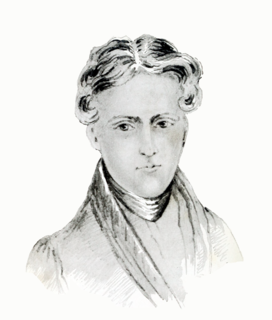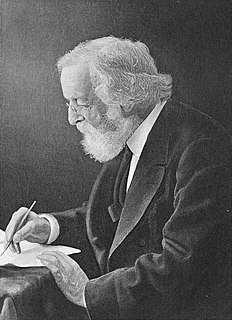A Quote by Rabindranath Tagore
The progress of our soul is like a perfect poem. It has an infinite idea which, once realised, makes all movements full of meaning and joy.
Related Quotes
In this external world, which is full of finite things, it is impossible to see and find the Infinite. The Infinite must be sought in that alone which is infinite, and the only thing infinite about us is that which is within us, our own soul. Neither the body, nor the mind, nor even our thoughts, nor the world we see around us, is infinite.
We should, to begin with, think that God leads a very interesting life, and that he is full of joy. Undoubtedly he is the most joyous being in the universe. The abundance of his love and generosity is inseparable from his infinite joy. All of the good and beautiful things from which we occasionally drink tiny droplets of soul-exhilarating joy, God continuously experiences in all their breadth and depth and richness.
Women, aren't they perfect? It doesn't matter if they're fat, skinny, blond, or blue. If a woman is willing to give you her love, Harvard, it's the greatest gift in the world. Makes you taller, makes you smarter, makes your teeth shine. Boy-oh-boy women are perfect, perfect joy and perfect ache. Joy when you first meet them and get to know them. Ache when you leave them. Joy. Ache. Joy. Ache. Joyachejoyachejoyachejoyache.
The purest joy in the world is joy in Christ Jesus. When the Spirit is poured down, his people get very near and clear views of the Lord Jesus. They eat his flesh and drink his blood. They come to a personal cleaving to the Lord. They taste that the Lord is gracious. His blood and righteousness appear infinitely perfect, full and free to their soul. They sit under his shadow with great delight. . . . They lean on the Beloved. They find infinite strength in him for the use of their soul — grace for grace — all they can need in any hour of trial and suffering to the very end.
Theology is-- or should be-- a species of poetry,which read quickly or encountered in a hubbub of noise makes no sense. You have to open yourself to a poem with a quiet, receptive mind, in the same way you might listen to a difficult piece of music... If you seize upon a poem and try to extort its meaning before you are ready, it remains opaque. If you bring your own personal agenda to bear upon it, the poem will close upon itself like a clam, because you have denied its unique and separate identity, its inviolate holiness.
As the days of spring arouse all nature to a green and growing vitality, so when hope enters the soul it makes all things new. It insures the progress which it predicts. Rooted in faith, growing up into love; these make the three immortal graces of the Gospel, whose intertwined arms and concurrent voices shed joy and peace over our human life.
Time, which measures everything in our idea, and is often deficient to our schemes, is to nature endless and as nothing; it cannot limit that by which alone it had existence; and as the natural course of time, which to us seems infinite, cannot be bounded by any operation that may have an end, the progress of things upon this globe, that is, the course of nature, cannot be limited by time, which must proceed in a continual succession.





































